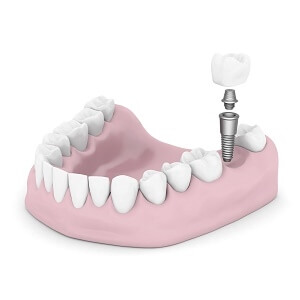Am I Healthy Enough for Dental Implant Surgery?
Last week, we talked about the different kinds of implants and the benefits that implants have to offer, but one of the most important things for your dentist to consider is whether or not you are a good candidate for dental implant surgery. This means:
- You are in good enough health for implant surgery.
- You have enough bone to support an implant, or
- If you don’t have enough bone, you are a candidate for growing the bone (bone grafting).
While not immediately apparent upon first examination, most of these questions can be answered fairly easily after having a thorough review of your medical history, a basic exam and the necessary radiographs (X-rays) to determine the bone levels.
Let’s review the first of these three points.
1. Your Health
While you might think that you are in good health, you should be aware that a surgeon who has placed hundreds of implants may be aware of issues which you might not know could be a concern. For example, if you have those aches and pains frequently associated aging or arthritis, you might be on medications to help with those pains. Some of these medications can slow down the healing of your bone, so much so that a simple tooth removal may not heal for many months. Since uneventful healing of bone is crucial to implant success, this may be of a concern.
Another example of this is diabetes. If you are a diabetic, do you know what your HbA1C is? If you are somewhat lax about managing your disease, you may again have poor healing. As mentioned above, implants need strong healing ability to be successful, and if your diabetes is not adequately controlled, your implants may fail to heal (integrate) into your bone.
Other medical concerns include heart conditions or problems with blood clotting or possible atherosclerosis. If this is the case, surgery could be risky due to the potential for excessive bleeding if your medication is not properly controlled.
There is much more to this than simply placing an implant into bone.
I am not writing this to scare you; quite the contrary. I am writing this blog to let you know what to look for in a good dental surgeon. You need someone who will take the time to carefully review your medications and past medical history to make sure your surgery will be a success.
Next week, we will talk about how we determine if you have enough bone for your implants and what is involved in growing sufficient bone.
Stay tuned; stay informed!


